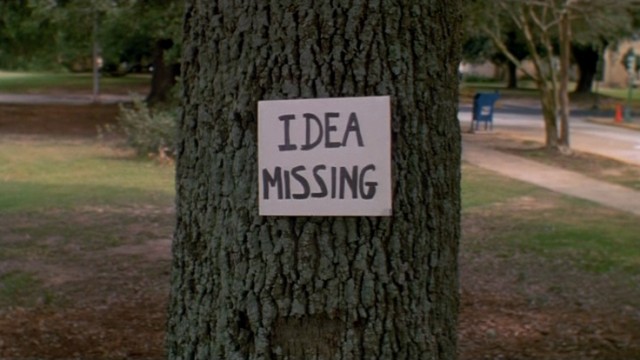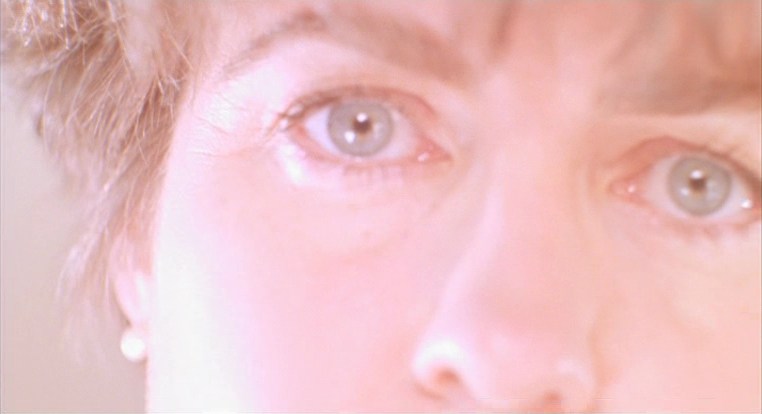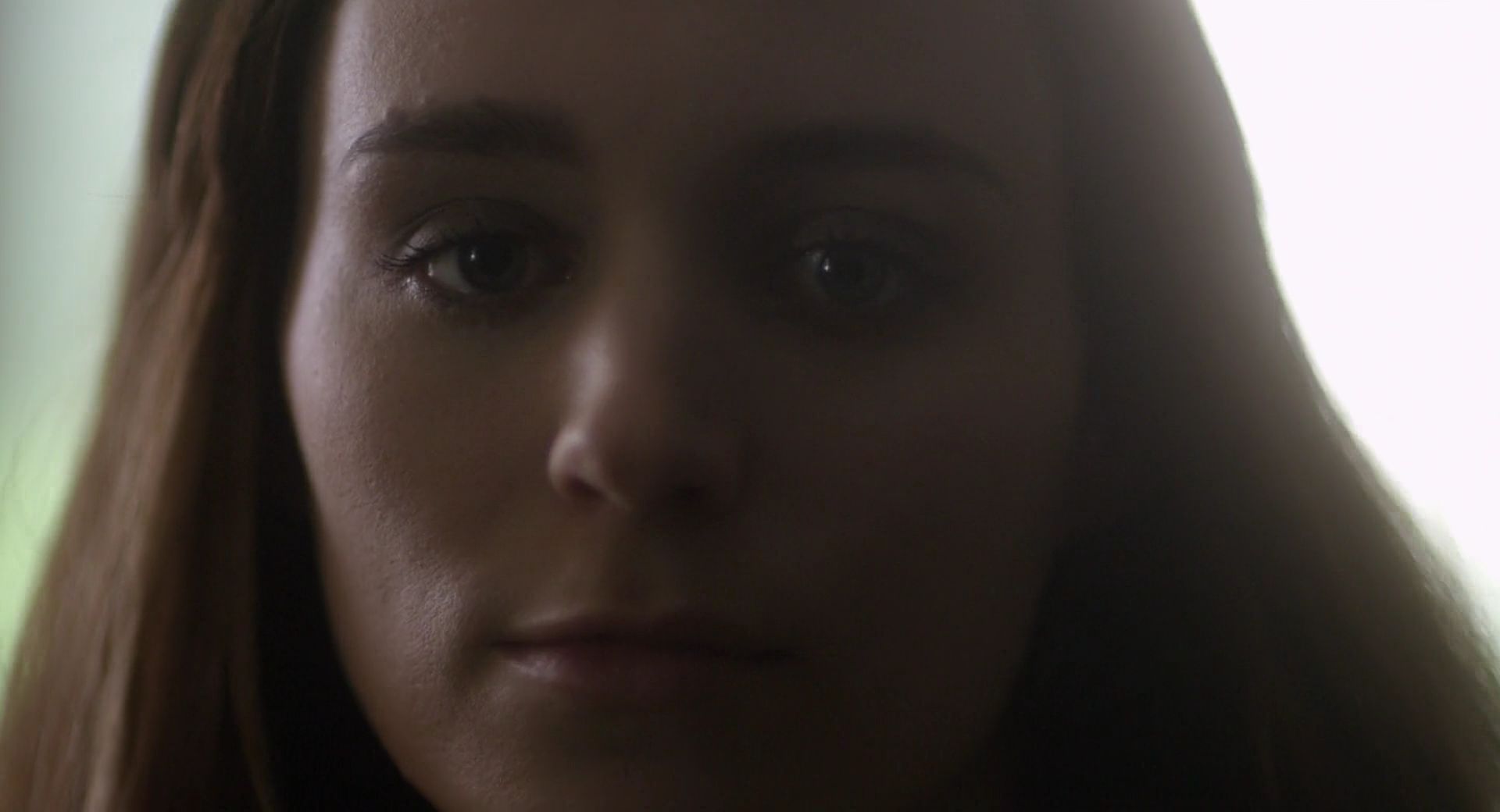(SPOILERS for Side Effects follow. Schizopolis isn’t really a movie one can spoil.)
There are no substantial bonus features on the DVD and Blu-Ray of Side Effects. But almost as worthwhile as any in-depth bonus is the credit at the end of a snarky pseudo-behind-the-scenes feature, which lists the segment’s director as one Fletcher Munson. Munson’s name is familiar to many a Soderbergh fan, it being the name of the blocked speechwriter/masturbation enthusiast who was one of two characters Soderbergh played in his masterpiece Schizopolis. His inclusion there is almost certainly an inside joke Soderbergh threw in for the three people who would get it, but it points to something deeper than Soderbergh might believe it to. The two films share more than just a director; Side Effects marks the end of the fertile period of theatrically-released films that Schizopolis helped to kickstart, but looking deeper, one sees that the film have remarkably similar structures despite the vast differences in their tones, plots, and genres.
Both films spend their first acts misdirecting their viewers. Sure, Side Effects is the one that does it the strongest (the misdirect starts with the opening credits, with references to the credits of both Rosemary’s Baby and All the President’s Men to convince the viewer the film will be much more “highbrow” a thriller than it ends up being), but Schizopolis delights in doing so too. We spend the first act of Schizopolis with Fletcher Munson, whose marriage with Mrs. Munson (Soderbergh’s ex-wife Betsy Brantley) has devolved to the point that they’ve simplified their household banter down to its barest descriptions. Munson works for the Scientology analogue Eventualism, trying to write a speech for its founder, T. Azimuth Schwitters. So much time is spent in the Eventualism offices that the viewer begins to believe that they’re going to be watching a whole film that’s poking fun at Scientology. Except it’s so thoroughly not that.
In Side Effects, the film begins by focusing on Emily (Rooney Mara), a clinically depressed woman who has more problems than a passionless marriage and writers block. Her husband (Chan-fried Po-Taters) is just getting out of prison for insider trading, and his return has done nothing to curb her unhappiness, at one point attempting suicide by head-on collision. After unsuccessfully trying numerous other medications, she’s prescribed Ablixa, a drug which works wonders for her sex life and overall view of life. Until she murders her husband while sleepwalking, one of Ablixa’s side effects. Ruh-roh, looks like this film is going to be a hard-hitting look at the awful consequences of prescription drug use, right? Right?
Except no. In fact, Ablixa is pretty much a massive red herring that might as well have been replaced with a copy of Schwitters’ best-seller How to Control Your Own Mind. Side Effects has about as little to say about prescription drugs as Schizopolis does about Sea Org. But on its own, “appearing to poke holes in a massive corporation/entity before not doing that” isn’t much of a connection. The connections get stronger from here.
Emily is not the protagonist of Side Effects‘ second act, and Fletcher Munson isn’t the protagonist of Schizopolis‘s. In both, the viewer is thrust into following a whole other character for an act, a doctor. In Schizopolis, it’s Dr. Jeffrey Korchek (also Soderbergh), a dentist and Munson’s doppelganger who’s been succeeding in the one area Munson has been failing; sexually pleasing Mrs. Munson. In Side Effects, it’s Dr. Jonathan Banks (Jude Law), who may lack Korchek’s knack for hilariously bad punnery, but who is a good doctor (as we see in his first scene, of him talking down a raving Haitian) and well-liked by his colleagues. But both will fall into their own obsessions before being done in by another outside force. Korchek falls out of love with Mrs. Munson and in love with Attractive Woman #2 (also Brantley), to whom he writes an awe-inspiringly inappropriate love letter, which he is promptly sued for. But his death comes at the hands of a goon who wants $15,000 and Korchek’s brother within 8 hours. Likewise, Banks begins to unravel Emily’s case (he was the one to prescribe her Ablixa) and find inconsistencies, slowly growing more and more obsessed with it until he’s removed from his practice and shunned by his wife and stepkid. But what really shovels dirt on his grave is a skeleton in his closet, the case of a disturbed young woman who stalked Banks (presumably wanting $15,000 within 8 hours, although this isn’t confirmed by the film) and named him in her suicide note, claiming that she performed oral sex for him.
But going beyond the bait-and-switch, both films are obsessed with doubles and triples (Soderbergh originally had a third part in Schizopolis, as an afro-clad younger version of Munson). There’s the depressed Emily we meet initially and the exhilarated Emily that shows up after she takes Ablixa, the one with sexual powers that had atrophied before, which, combined with the murderous side, forms her id, just as Korchek seems to represent Munson’s id and Attractive Woman #2 represented Mrs. Munson’s id. There’s the tale of Emily’s husband, a wealthy, successful, loving husband with a passion for fraud hiding in the background until the police show up. And Banks has his own dark tendencies, which the audience doesn’t discover until late in the film. There are only two members of both films’ main casts, one per film, who truly have only one side; Ann Dowd’s mother-in-law to Emily in Side Effects, who simply wants what’s best for her son’s memory, which leads her in the sad spot of being taken advantage of by her son’s murderer, and Eddie Jemison’s Nameless Numberhead Man in Schizopolis, who is constantly accused of having not one, but two secret identities, being called the mole, the spy, and the mole and the spy at Eventualism’s headquarters.
By the third act of both films, Soderbergh has retraced his steps, recontextualizing key images in both and putting both in a new female perspective. In Schizopolis, these recreations of previous scenes seem to delight in revealing absolutely nothing about them, revealing Mrs. Munson’s dialogue without the filter provided by the male protagonists of the first two acts but obscuring the males’ dialogue with foreign-language translations. In Side Effects, however, the scenes are replayed as a way of outlining Emily’s ultimate scheme; she’s teamed up with her former doctor/lover, Dr. Siebert (Catherine Zeta-Jones) to manipulate stock prices, get rich off of the results, and get rid of the husband who left her opulent life behind. During the sequence where their affair is revealed, we even get a near-direct quote of one shot from Schizopolis.
In the end, the viewer discovers that, regardless of whatever similarities she may have had to the two Soderbergh leads in Schizopolis, she’s ultimately closest to Elmo Oxygen, Schizopolis‘s ladykiller exterminator who’s bound to no one and no single occupation. Emily slips into her various roles, the sullen woman, the reinvigorated wife, the lesbian lover, the murderer, the sad prisoner, the fighter for drug regulation, with as much as ease as Elmo decides to become a TV star and political assassin, both filling roles as agents of chaos in their respective films.
But after the explanation, the doubling isn’t complete. As aforementioned, Banks is just a bit of an asshole behind his good-guy exterior, which he reveals as he gets closer and closer to unraveling Emily and Siebert’s scheme (in one scene, he flashes the mother of all smug grins at Emily’s window in her mental ward to make sure she’s watching him and Siebert talking). But even that’s a cover for how much of a sick fuck he is when he gleefully tells Emily that he’s going to upping her dosage of drugs to “no more free thinking for you” levels. And he does it! And he not only gets away with it, he gets everything back like nothing happened! He gets to live a hidden double life as a family man and a monstrous human being, the same thing Emily was punished for trying to do. Korchek died for being too passive with his brother, whereas Banks thrives as a result of exercising horrific control over another human being. Or maybe it’s the fact that he’s not a firm believer in gum control that ended up making the difference.






